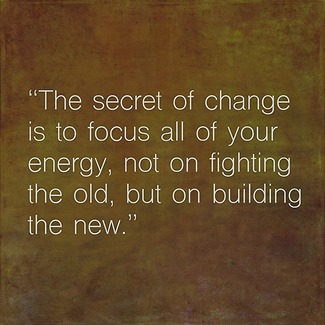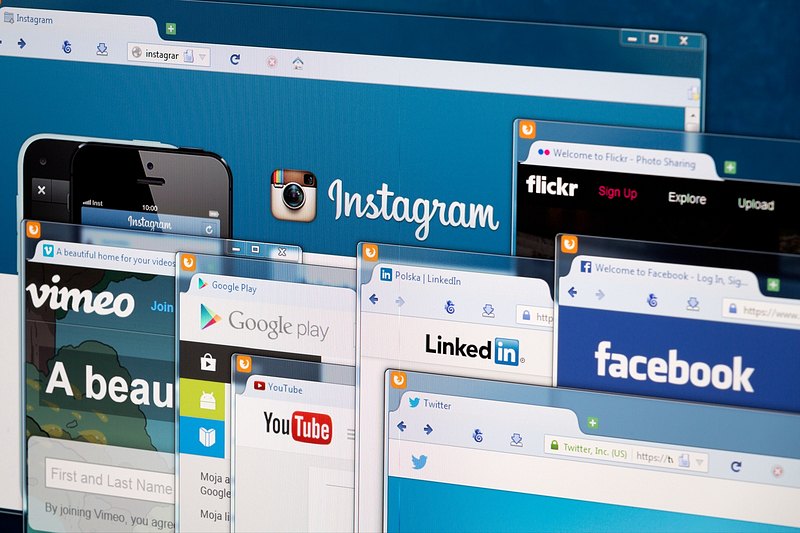How to Use Social Media to Market Your Therapeutic Practice
The longer you wait to use Social Media as an effective marketing venue, the more ground your competitors will cover through social media marketing.
We are going to discuss and explore the question, “how therapists and mental health professionals successfully use social media to market their therapeutic practice or program?” We will also look at the fears and concerns that stifle their attempts to use social media marketing. Lastly, we will uncover the plausible reasons why mental health practitioners and behavioral health programs struggle with the concept of marketing in general, especially social media marketing.
“78 percent of small businesses attract new customers through social media marketing. If people are unaware of you or your practice, then you are assured that you won’t be found online.”
Assuming that you are reading this article because you agree with the notion that practitioners should use social media marketing, the value in this article can be used to get you started using social media (SM) effectively. Therefore, we are going to cover the process, “how mental health practitioners and behavioral health businesses successfully use social media marketing.”
Understanding the Fears and Concerns That Stifle Marketing Success
Before we get started I think it is important to understand why mental health professionals struggle with social media marketing. My question is "why do behavioral health professionals have hesitations toward social media, at all? Answering this question is imperative to the premise of this post and a precurser to your marketing success.
The way I see it, therapists, counselors, and all behavioral health practices are businesses, and therefore marketing should be an essential part of operating their business. I find no valid reason why mental health practitioners struggle with marketing and social media, but I have found some prevailing myths that seem to get in their way.
“You should know that most of your prospective clients will use the Internet to check you out before making an appointment. They will research you, they will look you up, and confirm or deny whether or not you are the right person to help them solve their problems. A simple Google search will do the trick.”
Social media marketing just so happens to be one of the most effective and affordable means of marketing, and it allows for new businesses and small businesses to compete against successful, well-established businesses.
Marketing expersts claim that social media marketing has the real potential to level the playing field, enhancing one’s ability to compete in the marketplace. If this is true, why would any practitioner or clinical professional fail to utilize the full benefits of social media marketing? The simple reason is “myths.”
How Educational Marketing Works - Improved Lives & Thought Leaders
How is this all of this accomplished? How can you educate the public and demonstrate that you are the best option to improve the their life?
I recommend that you begin by telling your unique story through an Educational Marketing approach. Effective EM is about telling a story that educates people while offering hope through inspiration. EM is a type of branding that marketers refer to as a strategic form of marketing, and social media makes it easier and more effective.
By using SM you can tell your unique story of hope, encouragement, and recovery through a moving educational message. At the same time you can demonstrate that you are a thought leader (expert) within your specialty and niche. Essentially, by telling your story through Educational Marketing it reinforces the notion that you have the answers and solutions to unique problems, and that you are the one they have been looking for.
“The more you are able to show prospective clients that you can improve their lives, the better your chances are to attract new clients.”
Educational Marketing through social media is a powerful strategy that establishes trust and credibility by using an educational-based message that also motivates. It's a two-for-one proposition. Again, with EM you are not selling yourself or your services, you’re providing dynamic information to people who need it the most while branding your self as the expert.
Educational Marketing is Not Boring - Its Dyanmic and Inspirational
Your educational marketing approach can not be academic, sterile or boring. Instead it needs to be a cool story about real people achieving real outcomes with the message that unearths and activates. It has to be authentic too. Your EM message needs to be dynamic enough to create loyal clients who later become advocates and evangelists of your services.
With EM their are no sales pitches offering promises that go unfulfilled. Alternatively, EM is process of sharing important facts and expertise in the form of a relatable story that helps people to envision the possibility that they too can improve their lives. Effective Educational Marketing motivates, inspires, and emboldens people who otherwise might not have hope.
The secret of sauce behind Educational Marketing are the solutions you offer - real solutions that solve real problems. If you are seen as an authority or an expert in your speciality, people will give you and your services respect.
Additionally, if your EM message offered through social media demonstrates that you understand their plight, they will give you a shot - they will become a client. But that is not all. With social media you also must be available to engage. Your EM will create opportunities to engage prospective clients, and you must be available to converse.
“Every business needs to know what their clients want, what they are most interested in, and how they behave when they are comfortable and when they are turned off. This valuable insight helps business owners improve their social media marketing message by matching services to client's needs.”
Social Media requires you to be “social”, and available to engage. Therefore, many future clients may come to you because you engaged  them on social media. You need to be available to respond to their questions, and reply to their comments. Just knowing that you are available is key to your success. Effective EM starts the conversation, and your direct engagement connects the dots.
them on social media. You need to be available to respond to their questions, and reply to their comments. Just knowing that you are available is key to your success. Effective EM starts the conversation, and your direct engagement connects the dots.
Through social media you have the unique ability to be transparent while showing your competence and customer service skills. When you engage with the audience you they get a small taste of what it would be like to be under your care.
Social media marketing allows you to monitor prospective clients comments, answer their questions and gain valuable insights into their wants and desires, as well as their fears and concerns. Additionally, you are able to see what content attracts the right audience and what content generates new clients.
“A good social media strategy can amplify your marketing efforts for pennies on the dollar compared to traditional marketing.”
An added value can be achieved through social media when a practitioner has built a loyal following. New people coming to your social media platform for the first time will get the sense of your credibility if they see consistency of communication between you and your followers.
Myths About Social Media Held by Practitioners and Clinicians
Without a doubt social media has received some negative publicity within the mental health world, leading to some entrenched misunderstandings and misrepresentations, which then have resulted in the creation of marketing falsehoods.
These myths have been reinforced by two fundamental realities. One, the fear of learning new techniques and technologies. It's been found to be true that clinicians and practitioners who have been around for awhile find social media (digital marketing in general) to be daunting. Facts regarding human behavior tells us that anything "new" can be scary. Change can be scary.
"So, it's no wonder the old guard professionals struggle with social media marketing - it represents a pretty radical change."
Regardless of these realities there is a real consequence for failing to embrace change as it relates to the use of social media for marketing.  The good news is that I am here to tell you that anyone can learn how to use social media effectively.
The good news is that I am here to tell you that anyone can learn how to use social media effectively.
The myth is based on the fallacy that social media is difficult and there is too much to learn. The fear is real, and it has prevented many professionals from tapping into the value offered by social media. Plus, the fear is supported by a false assumption that the “old way” of marketing is the only "right" way, and morally superior to social media.
The second myth has to do with the negative press associated social media as it pertains to the detrimental impact SM has had on people and society in general. Social media has received a bad wrap, having been tagged to being responsible for the breakdown of important societal relationships, as well as stunting emotional growth.
“Your consideration shouldn't be to use or not to use social media marketing. Rather, you should be focused on ‘how to use social media to tell the story of your practice and services, and how it relates to your client’s improved quality of life.’ “
Professional counselors are aware of the fact that Facebook and other social network behavior is rightfully linked to the destruction of marriages, for example. Moreover, SM has been called out as being responsible for stunting the emotional growth of young people. And, there is more.
The vast amount of papers produced by the world of psychology regarding the ills of social media has painted SM in a negative light. The emphasis has been on the negative influence of digital technology and social networks, and the negative impact it has had on societies mental and behavioral health.
If you were not aware of the flip side of SM, the positive value of digital technology, then you might think social media rivals the ill related to chemical dependency. It is my opinion that negative press related to SM has caused many mental health professionals from realizing the positive aspects of social media, specifically in regard to the enhancement of social mental health sciences.
"Ultimately, mental health marketing through social media is the act of connecting with people in real ways in order to demonstrate that you can help them improve their life. It’s a process that projects hope."
For example, today, because of SM there is far more awareness in the general public in regard to all aspects of mental and behavioral health, including the sentitment of "restoration and hope." Plus, social media has given rise to online support communities that have been found to be extremely effective.
It's easy to understand how both of these myths mentioned above can manifest in a group of educated and intelligent professionals. It's also clear that these cognitive biases, if gone unchallenged, can prevent mental health practitioners and professionals from tapping into new marketing tools, especially those involving social media marketing.
The Necessity and Realty of Making Money
At the end of the day, mental health practitioners are businesses and businesses are always in need of new clients and customers. Moreover, businesses are designed to make money. At the very least, money is required for businesses to cover expenses like payroll and keeping the lights. If a business cannot attract new clients or customers they cannot make money, and therefore they will eventually fail. Marketing is essential to the growth and prosperity of any business, including mental health enterprises.
“Social media are marketing channels that introduce you to people looking for what you provide. It is the most convenient ways to increase your visibility and make yourself available to prospective clients.”
Unless you’re practice is a non-profit philanthropic organization with a healthy flow of donations, you will eventually need to focus on making money. Even mental health practitioners (therapists, counselors, psychologists, substance abuse specialists, etc.) have to make money in order to keep their doors open.
Therefore, like all businesses, therapist and counselors must engage in marketing to be successful. Right now, the most affordable method of marketing is social media.
Its Okay to Compete - And Compete to Win!
If my premise is true and therapists and counselors are correctly classified as "businesses", then they face the same demands and requirements of all other types of businesses. For example, 99.99% of all businesses are in competition with other businesses, competing against one another for clients and customers.
“With competition there will be “winners” and “losers.” Businesses who have learned to effectively market typically find themselves in the “winner” column.”
In the case of therapists and mental health counselors, the competition can be fierce. New clients don’t magically appear, and to grow a  practice you must willing to compete to win.
practice you must willing to compete to win.
Therapists and counselors, just like any other business must be effective marketers competing for clients, or they will face the prospect of going out of business. If competition is fierce, then you must be creative, energetic, and assertive in your marekting campaigns. You have to be proactive, and crafty too. The best way to accomplish this is through social media.
If you have not learned how to use Social Media to market your practice or program, there no better time to learn. It’s time to get on board, or lose to those who have.
Two Critical Things Mental Health Professionals Consider When Using Social Media Marketing
The primary goal of therapeutic business is to increase awareness of your practice and demonstrate how you will improve the lives of your clients. The second goal is much like the first. Your secondary goal is to become a trusted thought leader representing your specialty and geographical area. Both of these goals can be achieved using Educational Marketing (EM) delivered through social media.
Essentially, your marketing objective is to use social media to brand your practice, educate prospective clients about the solutions you provide, and to bring awareness of your expertise and unique value proposition. Branding is the written and visual expression of you and your practice, and your value to the public. It is the communication of characteristics, values, and attributes that clarify your offering.
"As the name suggests, Educational Marketing is the act of educating your prospective clients, opposed to pitching or selling them."
Prospective clients want to be educated about your results. They want to a sense of comfort and assurance that you can produced results through your services. If the prospect doesn’t believe that you can produce results that are aligned with their desires or expectations, they will overlook you and pass you by.
Promoting High-Quality Content Makes You a Thought Leader
Creating high-quality content to be posted through your social media channels is the sure-fire way to attract prospective clients to your menatl health practice or program. When prospective clients keep coming back for more, you have become a thought leader. When they continue to visit your social media, or your website, you increase the likelihood that they will find you to be thought leader in your niche. Moreover, you increase the likelihood of attracting them as new clients - when they are ready and at the right time.
"When you post good stuff, regardless of the source, people will follow you if they find value. If your posts can improve their life they will follow you, and get to know you professionally. They will associate you with the good stuff you share. They will see you as an expert they need."
Curation - The Key to Becoming a Thought Leader through Social Media
If you want to improve your business through curation, you should plan to educate people by offering them real solutions to their real problems. Then, be ready to engage them. It’s not about sharing a post on Facebook or Twitter, its about creating an opportunity to engage with the prospect of creating a relationship. This process will help you become recognized as a thought leader.
Becoming a thought leader in a particular mental health niche is doable if you are consistent, thorough, and resourceful with your content. Thought leaders don’t just promote themselves, or their expertise, but they also promote many thoughts from many experts. Share the wealth!
Don’t be afraid to share posts and articles you find from best professionals in your speciality. If the information is valuable, post it and share it on Facebook or Twitter. In the marketing world this is called "content curation".
"To maintain and grow your social media followers, practitioners need to think beyond themselves and their own viewpoint and opinion. The way to keep your followers coming back for more is to provide relevant, high-quality content that your clients find valuable and actually want to read and share."
Social media content curation is the process of researching, finding, and then filtering through content related to your specialty and niche. You probably already spend time on the web engaged with the rich sources of information related to your profession. Now, consider sharing it on social media.
"Curation is the process of sharing the best news, articles, videos and infographics you can find. Through your social channels share the good stuff with your followers. Soon enough you will become a recognized thought leader. But don't stop there."
In addition to promoting other’s quality content, ensure your expert status by creating and sharing your own content. Your writting, videos, infograhics will then reinforce the curated content you find from others in your profession. As a mental health professional will improve your status by sharing valuable content from reputable sources, and then reinforce your expertise by creating and posting your own content. The combination of curation and self-generated content is the one-two punch that works.
"The more high-quality content you create and share, the more engagement you will generate. More engagement means increased opportunties to generate new clients. It’s an exponential proposition."
Social Media Has Taken the Mental Health Industry By Storm
Social media marketing is already “the big thing” for mental health practitioners and behavioral health businesses. There is no doubt that social media marketing is already a game changer for many mental health businesses. So, what are you waiting for?
Therapists make their living by building relationships based on trust. Successful social media marketing is just that, relationships built on trust. Taking the time to engage with people through social media takes time. However, it is an exceptional tool for educating the masses and engaging prospective clients. It is the best use of your time.
There is a lot of competition in the mental health arena, especially among young new therapists. How you distinguish yourself from the other professionals will either help your business to grow and thrive, or add to your business demise. I recommend using social media to reach, find, and attract your future clients.
Setting up a the Top Three Social Median Channels
The top three social media channels are Facebook Business Page, Twitter, and LinkedIn. To start with, go with Facebook Business Page.
Facebook Business Page: In a very shot time you can create a Facebook Business Page and start connnecting with prospective clients. To create a Facebook Business Page you will first have to have a personal Facebook page. But don't worry, your personal page will not be integrated with your Business Page and the two will be totally separate. For more infomation about setting up you Facebook Business Page, click here.
The process is easy. Set up your page, identify your audience (prospective client profile), create compelling content. As you learn more and get comfortable with using Facebook, you can also learn to advertise your practice through your business page. It's very affordable, and easy to learn. What's more, you can track and measure your results. For more about using Facebook for Business, click here.
Twitter Business Account: Twitter is a little more difficult to set up but just as effective when you get the hang of it. For the basics for setting up a Twitter business account, click here.
LinkedIn Business Account: Building a presence for your practice using LinkedIn is more work than both Facebook and Twitter. However, as a Business-to-Business platform, LinkedIn is very powerful. Moreover, it is a great source of content for curation. To get started you simply enter your name and company email address, verify that you are eligible to create the page, and then you are able to set up your company page and profile. For more info about LinkedIn Business Page, click here.
Ethical Considerations Using Social Media Marketing
While it is always important to remember your client’s privacy is your number one priority, the good news is that social media marketing and your clients privacy are two totally separate matters. In fact, they are exclusive of one another.
Assuming that you are clear on the ethics regarding marketing, you should know that the content you use for social media marketing has nothing to do with your clients. This should be an easy issue to navigate, especially if you understand the basic premise of ethical marketing.
Follow these simple rules and guides and avoid ethical violations:
- Don't use your private social media accounts for clients. Don’t use messaging attached to your personal accounts either. Always use a professional SM page and keep all communication with your clients offline and away from social media.
- Don’t discuss the details of a client over social media, and do not communicate or engage your clients through SM. If they attempt to contact you about an appointment or any other matter, do not respond and counsel them about appropriate use of SM.
- Don't go into deep clinical discussions on social media. Keep answers brief, and if they begin to get personal, move the discussion off of social media at once. Feel free to interact with people but do not attempt to counsel prospective clients over social media.
- Always be aware that people in crisis can and will engage you through social media. Be ready. Be prepared.
Therapy Insider Partners with Mental and Behavioral Health Businesses
Therapy Insider is uniquely positioned to help mental health practitioners and programs cultivate new streams of referrals through native advertising and social media marketing. For more information, click here.
"Therapy Insider provides professional behavioral health businesses with the tools and acumen to leverage high-quality content as a strategy to build enhanced referral systems."
By providing professionals with advertising, “best practices”, “how-to guides”, “realtime analysis”, and “curated content” Therapy Insider makes it easier for practitioners and programs to achieve cost-effective results through native advertising.
SPECIAL BONUS: Join Today and Get Your Own Blog
We Don't Just Make Your Business Visible Online...We Also Make YOU Famous! Publish Your Personal Articles for FREE!
The #1 way to gain instant credibility with potential clients is to publish articles online. Our powerful blog platform places your content directly into our news feeds, so you get noticed...and respected.
If you're not publishing regularly online, you are missing out on one of the greatest opportunities available for building your brand. People looking for your services want to know more about who they are dealing with, and reading your blogs, and informative articles help them build legitimacy and trust. Get Qualified Referrals From the Internet with ZERO Experience in Online Marketing.


